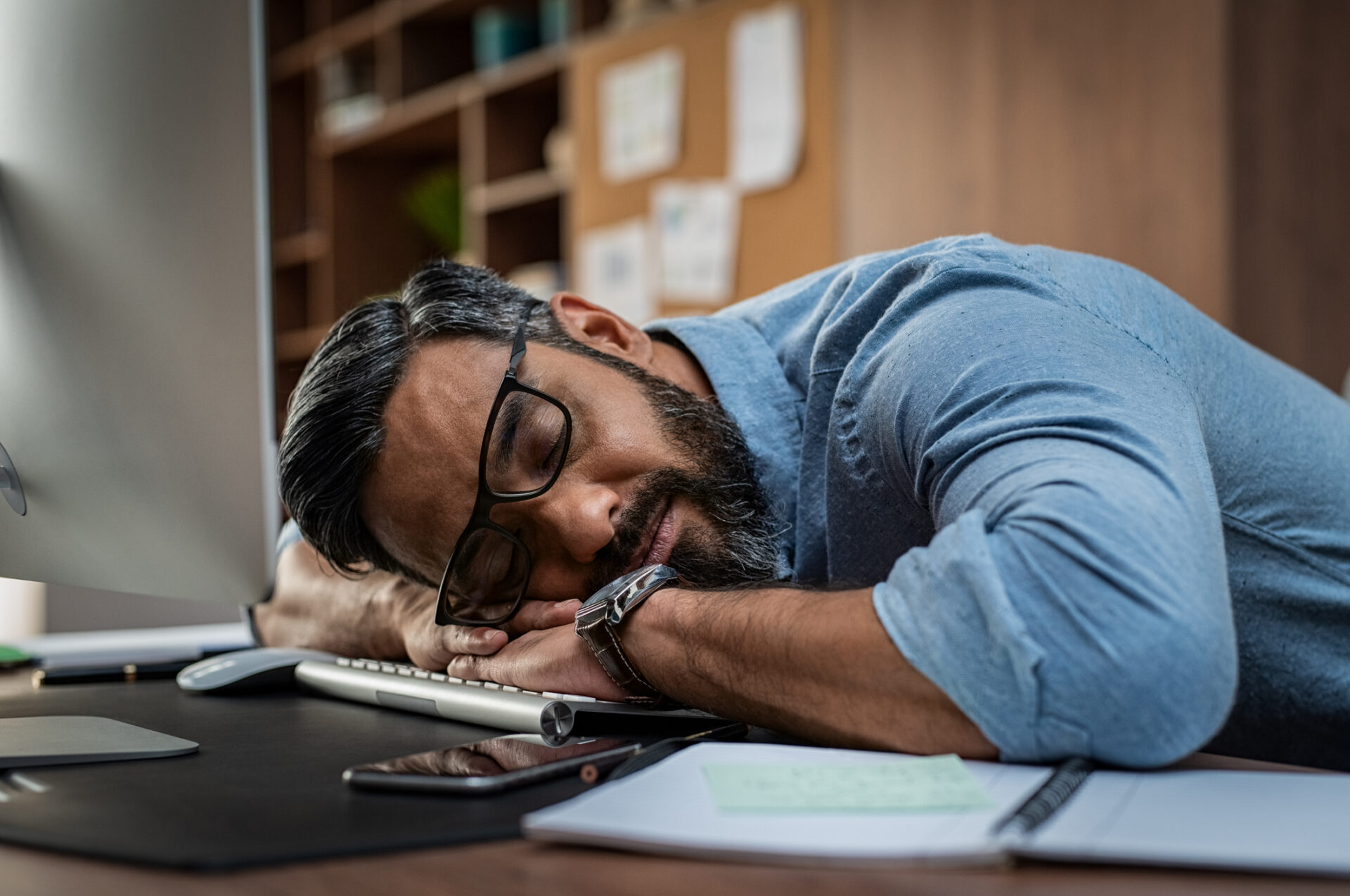Many of us might struggle with low energy at one time or another. However, if you’re regularly experiencing low energy, feeling tired all the time, and finding it challenging to undertake daily tasks without feeling worn out, there may be a common cause for how you feel.
In addition to feeling low energy, other symptoms include:
- Feeling sleepy or tired throughout the day
- Suffering from brain fog or fuzzy thoughts
- Lack of motivation or concentration
Occasionally, we may all have low energy for a short time, like after a big meal or if we’ve slept badly.
However, something may be happening behind the scenes if you regularly find yourself with little energy. This article will explore the ten common causes of low energy in men.
10 Common Causes of Low Energy
1. Not Enough High-Quality Sleep
According to the CDC, one in three American adults don’t get enough sleep. We need seven to nine hours of good quality sleep each night. While sleeping, your body performs several crucial processes such as releasing growth hormones and repairing and regenerating cells. Therefore, most people
wake up feeling refreshed. However, if you’re regularly not getting enough sleep, your body isn’t able to perform the processes required, which over time, can lead to low energy and fatigue.
2. A Balanced Exercise Routine
Physical activity increases adrenaline and energy levels; over time, a lack of exercise can cause muscles to become fatigued after movement. In addition, too much exercise can also lead to fatigue as your muscles become tired. It’s essential to find the middle ground to maintain good energy levels.
3. Low Mood or Depression
The symptoms of low mood or depression may vary from person to person, but often it can cause feelings of low energy. Those experiencing depression may lose interest or motivation for daily tasks.
4. Stress
Some stress is normal, but
chronic stress has been linked to fatigue. In addition,
research has revealed that chronic stress could lead to structural changes in your brain, which may contribute to exhaustion and low energy symptoms.
5. Consuming Too Much Caffeine
It sounds counterintuitive, but caffeinated beverages such as coffee and energy drinks may cause you to feel more tired the next day.
Studies have found that feeling tired can cause people to rely on caffeine, which then harms your sleep. This creates a poor sleep cycle.
6. Nutrient Deficiencies
Even if you’re getting the recommended seven hours of sleep each night, nutrient deficiencies may cause you to feel exhausted.
Deficiencies in iron, B vitamins, vitamins D & C, and magnesium have been linked to low energy and fatigue.
7. Dehydration
Dehydration happens when you don’t drink enough water to replace the water you lose throughout the day.
Studies have shown that dehydration can lead to decreased concentration and low energy.
8. Being Overweight or Obese
Maintaining a healthy body mass index (BMI) may support good energy levels and high-quality sleep.
Obesity is linked to a greater risk of many health conditions such as type 2 diabetes, heart disease, and certain cancers, and it may increase your risk of chronic fatigue.
In addition,
obesity increases your risk of sleep apnea, which can leave you feeling exhausted during the day.
9. Imbalances in Your Diet
We get most of our energy through the nutrients we consume through food, so to ensure that our bodies have the nutrients it needs, we should consume a balanced diet.
Undereating or eating highly processed foods that are low in nutrients may lead to deficiencies that can make you feel tired. In addition, when you don’t consume enough nutrients like protein and healthy fats, your body will start breaking down your muscles to fuel its energy needs. This leads to a loss of muscle mass which can in turn contribute to fatigue.
10. Low Testosterone
Testosterone is a primary sex hormone that plays an essential role in energy levels. Low testosterone can contribute to low energy in men. As men age, the amount of
testosterone produced naturally declines, and this can cause fatigue.
Why Do We Have Less Energy as We Age?
If you fall asleep after a big meal or nod off in front of the television and have found yourself wondering where the energy you used to have has gone, you’re not alone. Feeling tired and getting older are often closely linked. One of the most significant contributing factors here is cellular aging, which means that as the cells in our bodies age, they become less effective and function less efficiently.
The good news is that while your genes partially determine cellular aging, your lifestyle is also influential. So, there
are many lifestyle changes that we can make to try and limit low energy and fatigue as we get older.
Interested in learning about biological age? Find out more from Opt Health!
When to See a Doctor About Feeling Tired
While we might all have days when we feel tired, it’s not normal to constantly feel exhausted.
If you’re concerned about fatigue or feeling low energy most or every day, consider speaking with a doctor or your healthcare provider.
At
Opt Health, our team of specialized men’s health doctors can provide treatment and test results from the comfort of your own home. By increasing
men’s vitality through
longevity medicine, we want to help you feel like you again.
Don’t hesitate to
contact us if you have any questions or want to book an appointment.

